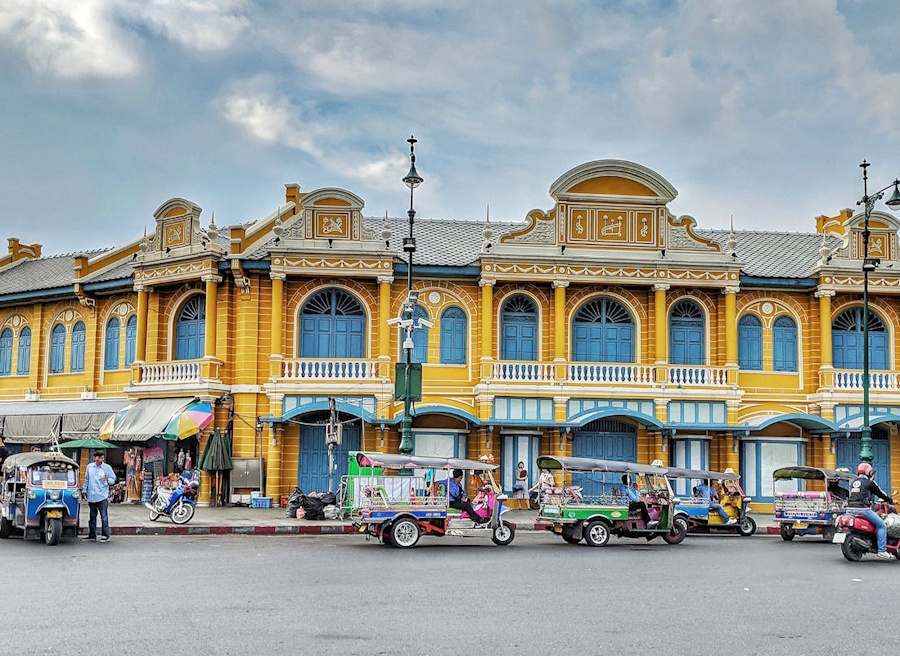Thailand is a country that faces many challenges and opportunities in terms of sustainability. The country is highly vulnerable to the impact of climate change, such as rising sea levels, extreme weather patterns, and air pollution. At the same time, the country has a strong commitment to achieve the United Nations Sustainable Development Goals (SDGs) by 2030 and to become a high-income, inclusive, sustainable and resilient country.
Let’s explore some of the ways that Thailand can contribute to sustainability for global example, focus on three main aspects: policy, economy, and society.
Policy
Thailand has recently announced more ambitious climate targets in November 2022, aiming to reduce its greenhouse gas (GHG) emissions by 40% from the 2005 level by 2030, and to achieve net-zero emissions by 2065. The country also adopted the Bio-Circular-Green (BCG) model as a guiding principle for its development strategy, which emphasizes the use of bio-based resources, circular economy, and green innovation. The BCG model covers four key sectors: food and agriculture, health and wellness, bioenergy and biochemicals, and tourism and creative economy. Moreover, the country has signed the UN Sustainable Development Cooperation Framework 2022-2026 with the Royal Thai Government in January 2022, which articulates the UN development system’s support for Thailand’s implementation of the SDGs. The Cooperation Framework is closely aligned with Thailand’s 20-Year National Strategy and the draft 13th National Economic and Social Development Plan.
Economy
Thailand has a diversified economy that relies on various sectors such as manufacturing, services, agriculture, and tourism. The country has a potential to leverage its economic strengths to promote sustainability in different ways. For example, the country can expand its electric vehicle (EV) industry, which is expected to grow rapidly in the coming years due to the government’s incentives and policies. The EV industry can help reduce the country’s dependence on fossil fuels and lower its carbon footprint. Another example is the renewable energy sector, which can help diversify the country’s energy mix and increase its energy security. Thailand has set a target to increase the share of renewable energy in its total energy consumption to 30% by 2037. The country has abundant resources of solar, wind, biomass, and hydro power that can be harnessed for clean energy production.
Society
When talking about sustainability in social aspect, it means ensuring that no one is left behind and that everyone has equal access to opportunities and resources. Thailand has made significant progress in reducing poverty and improving human development indicators, such as education, health and gender equality. However, there are still gaps and inequalities among different groups of people, such as ethnic minorities, migrants, refugees, stateless persons, LGBTI individuals and people with disabilities. These groups often face discrimination, exclusion and violence, which limit their potential and well-being.
To address these issues, Thailand has adopted several policies and initiatives that aim to promote social inclusion and cohesion. For example, Thailand has ratified the UN Convention on the Rights of Persons with Disabilities and enacted the Persons with Disabilities Empowerment Act in 2022, which provides legal protection and support for people with disabilities. Thailand has also launched the National Strategy for Social Cohesion and Peaceful Coexistence 2022-2026, which aims to foster dialogue, tolerance and respect among different groups of people, especially in the conflict-affected areas of southern Thailand.
Another aspect of sustainability is social innovation, which means finding new and creative ways to solve social problems and create positive impact. Thailand has a vibrant ecosystem of social innovators, who are using various approaches and tools to address various challenges, such as climate change, waste management, health care, education and community development. Some examples of social innovation in Thailand are:
- The Bio-Circular-Green (BCG) model, which is a development framework that integrates bio-economy, circular economy and green economy principles to create value from natural resources, reduce waste and pollution, and enhance environmental quality.
- The Social Enterprise Promotion Act 2022, which provides legal recognition and support for social enterprises, which are businesses that have social or environmental missions as their primary objectives.
- The UN Sustainable Development Cooperation Framework 2022-2026, which is a partnership between the UN and the Thai government that articulates the UN’s support for Thailand’s commitment to achieve the Sustainable Development Goals by 2030.
These examples show how Thailand can contribute to sustainability for global example, leading the world to a better place.



